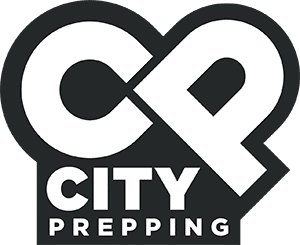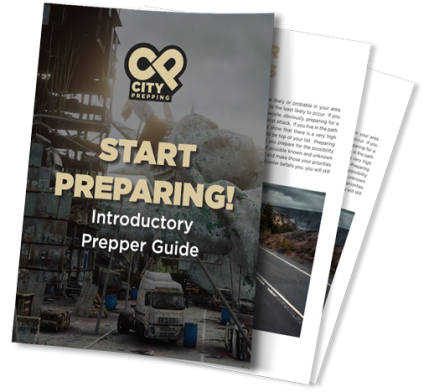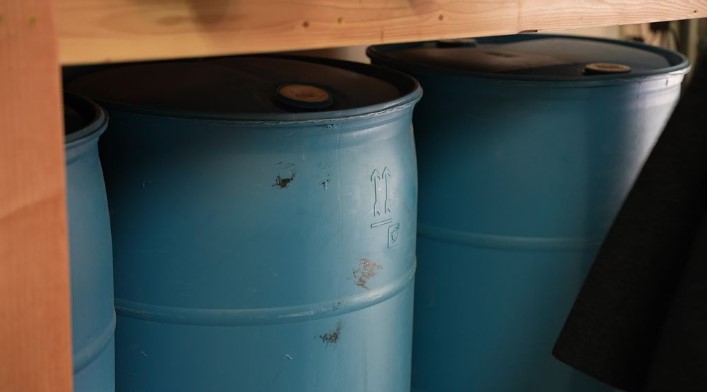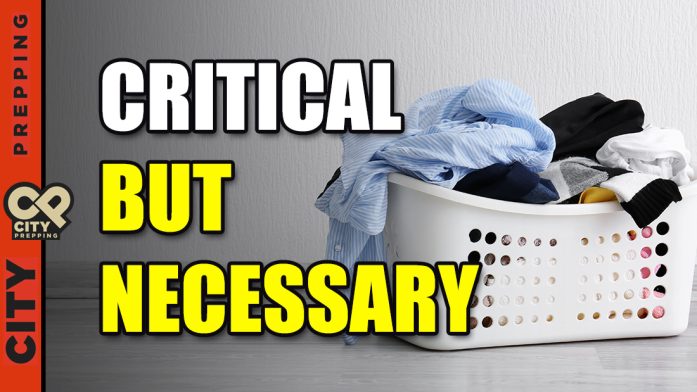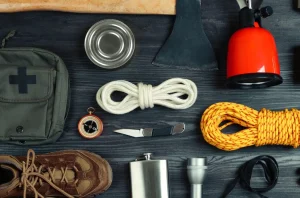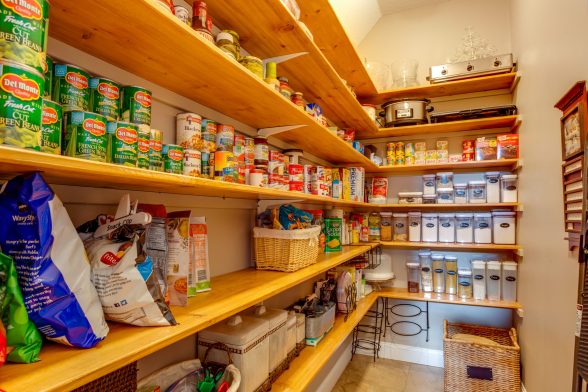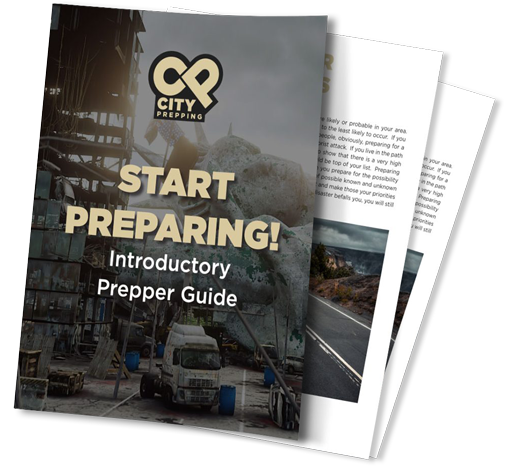 If you don’t know the story of the Little Red Hen, it is an old English tale about a red hen who finds some wheat seeds one day in the barnyard. She asks other barnyard animals to help her plant them, later thresh the wheat, grind them to flour, and finally bake them into bread. The three animals she asks, the type of which varies by the telling of the story but usually a sleepy cat, greedy pig, and lazy dog or rat, all refuse to help her. She has to learn the skills of growing the wheat, grinding it to flour, and baking all while managing her chicks. She asks the animals to help her at every step along the way, but they refuse. When she asks her final question, “Who will help me eat the bread?” Of course, all those lazy barnyard animals are the first in line to volunteer. Her response is basically, “Nope. I’ll eat it, and my chicks will eat it.” And, she sends the freeloading lazy and greedy barnyard animals on their way. It’s a quaint little allegory about using resources, learning, hard work, and perseverance and not allowing yourself to be taken advantage of by others.
There are some clear parallels to the prepping community too. You have probably heard a friend or family member or two joke, “I’ll be going to your house when the crap hits the fan.” It’s partly said as a joke to avoid and deflect away from the uncomfortable conversation of a person’s lack of preparedness or potential future disasters. Still, it is also a feeler to gauge your openness to them showing up when it all goes down. Many just don’t know how to prep or won’t prep, but they also want to see if you’re going to do all the work for them. In both respects, it is the person’s unwillingness to do the work–their unwillingness to plant the seeds, harvest the crop, make the flour, and learn to bake the bread.
It is a serious dilemma because most people aren’t so sadistic as to turn away a friend or loved one who will, for a fact, die if they don’t receive food, water, or medicine. It is first in our nature to survive. The act of self-preservation overrides all other impulses and actions. Yet, it’s probably second in our human nature to want to help people, especially those we care about.
It’s not too difficult to imagine the dilemma and the decisions you would have to make if, after a disaster, people show up at your door. Yet, there is a sort of framework we can look at to determine what you should do when this inevitable situation arises. First, let’s look at the criteria for assessing what you need to make your decision, then I’ll explain ways you can cultivate a better outcome for yourself and even strengthen your own prepping community in the process.
Criteria 1: The Disaster
If you don’t know the story of the Little Red Hen, it is an old English tale about a red hen who finds some wheat seeds one day in the barnyard. She asks other barnyard animals to help her plant them, later thresh the wheat, grind them to flour, and finally bake them into bread. The three animals she asks, the type of which varies by the telling of the story but usually a sleepy cat, greedy pig, and lazy dog or rat, all refuse to help her. She has to learn the skills of growing the wheat, grinding it to flour, and baking all while managing her chicks. She asks the animals to help her at every step along the way, but they refuse. When she asks her final question, “Who will help me eat the bread?” Of course, all those lazy barnyard animals are the first in line to volunteer. Her response is basically, “Nope. I’ll eat it, and my chicks will eat it.” And, she sends the freeloading lazy and greedy barnyard animals on their way. It’s a quaint little allegory about using resources, learning, hard work, and perseverance and not allowing yourself to be taken advantage of by others.
There are some clear parallels to the prepping community too. You have probably heard a friend or family member or two joke, “I’ll be going to your house when the crap hits the fan.” It’s partly said as a joke to avoid and deflect away from the uncomfortable conversation of a person’s lack of preparedness or potential future disasters. Still, it is also a feeler to gauge your openness to them showing up when it all goes down. Many just don’t know how to prep or won’t prep, but they also want to see if you’re going to do all the work for them. In both respects, it is the person’s unwillingness to do the work–their unwillingness to plant the seeds, harvest the crop, make the flour, and learn to bake the bread.
It is a serious dilemma because most people aren’t so sadistic as to turn away a friend or loved one who will, for a fact, die if they don’t receive food, water, or medicine. It is first in our nature to survive. The act of self-preservation overrides all other impulses and actions. Yet, it’s probably second in our human nature to want to help people, especially those we care about.
It’s not too difficult to imagine the dilemma and the decisions you would have to make if, after a disaster, people show up at your door. Yet, there is a sort of framework we can look at to determine what you should do when this inevitable situation arises. First, let’s look at the criteria for assessing what you need to make your decision, then I’ll explain ways you can cultivate a better outcome for yourself and even strengthen your own prepping community in the process.
Criteria 1: The Disaster
 Disasters can be loosely categorized by their affected zone, intensity, and aftermath. If a tornado, for instance, rips through your neighboring town and knocks out your power, you can determine the impact that might have on your community’s first responders, power grid, and other services. As it was a localized destructive event, you can reasonably assume that your shelter was spared and that it isn’t likely to happen in another hour, day, or week. It could, but it isn’t expected. So, based on this localized destructive disaster, do you sit on your resources? Do you hoard them when your neighbor in the next town over is suffering, or do you loan him your tent and a few supplies?
If the destructive zone of the disaster is much greater, like a hurricane, you might have to now factor in those moving through your area fleeing the destructive zone. If you are in that destructive zone and it is extensive, you have to factor in that most of the population will be desperate for the essentials in life. From an OPSEC, (which is short for operational security) standpoint, you probably don’t want strangers knowing you’re sitting on a supply of drinkable water and edible food.
So, whenever a disaster strikes, consider the extent of the destruction and the projected recovery through the aftermath. If you were to arrange disasters loosely based upon their impact on your community and their projected recovery phase, it would probably go from smallest to largest, something like tornadoes, hurricanes, floods, wildfires, earthquakes greater than 7.0, pandemics, economic collapse, and to civil unrest and civil war. I know I left many disasters off that shortlist, but the point is that any disaster can be categorized by its affected zone, intensity, and aftermath. If you feel that it’s more of a minor disaster that will pass, you would want to try and help people however you can. Your supplies are replenishable, but human life, once gone, is gone forever. Whomever you support, if it is someone you know, you will want to circle back with them when peace is restored to discuss preparing for the next disaster and other disasters; though, I will discuss that later in this video. Bring them along on your shopping run when you replenish your supplies. Have the prepping discussion with them.
Criteria 2: The Duration
Disasters can be loosely categorized by their affected zone, intensity, and aftermath. If a tornado, for instance, rips through your neighboring town and knocks out your power, you can determine the impact that might have on your community’s first responders, power grid, and other services. As it was a localized destructive event, you can reasonably assume that your shelter was spared and that it isn’t likely to happen in another hour, day, or week. It could, but it isn’t expected. So, based on this localized destructive disaster, do you sit on your resources? Do you hoard them when your neighbor in the next town over is suffering, or do you loan him your tent and a few supplies?
If the destructive zone of the disaster is much greater, like a hurricane, you might have to now factor in those moving through your area fleeing the destructive zone. If you are in that destructive zone and it is extensive, you have to factor in that most of the population will be desperate for the essentials in life. From an OPSEC, (which is short for operational security) standpoint, you probably don’t want strangers knowing you’re sitting on a supply of drinkable water and edible food.
So, whenever a disaster strikes, consider the extent of the destruction and the projected recovery through the aftermath. If you were to arrange disasters loosely based upon their impact on your community and their projected recovery phase, it would probably go from smallest to largest, something like tornadoes, hurricanes, floods, wildfires, earthquakes greater than 7.0, pandemics, economic collapse, and to civil unrest and civil war. I know I left many disasters off that shortlist, but the point is that any disaster can be categorized by its affected zone, intensity, and aftermath. If you feel that it’s more of a minor disaster that will pass, you would want to try and help people however you can. Your supplies are replenishable, but human life, once gone, is gone forever. Whomever you support, if it is someone you know, you will want to circle back with them when peace is restored to discuss preparing for the next disaster and other disasters; though, I will discuss that later in this video. Bring them along on your shopping run when you replenish your supplies. Have the prepping discussion with them.
Criteria 2: The Duration
 Just as you assess the disaster’s affected zone, intensity, and aftermath, you should also evaluate the disaster’s duration. An 8.0 earthquake will have aftershocks that could be 7.0 or higher. Each earthquake series lessens in intensity over time. If a hurricane strikes, but you can see from the weather maps that a second and more intense hurricane is approaching, you may not want to be opening your doors. If civil unrest is growing from a city’s epicenter and moving out towards your direction or getting random in pockets all over the place, it doesn’t make sense to risk revealing your preps.
Every disaster has a duration, and you have to factor that into your decision to help or turn away people. You can never know with absolute certainty the duration of a disaster. Still, you can hypothetically conclude the duration based upon the information you can gather and historical references. If there doesn’t seem to be a cascading effect, one system collapsing is contained and not causing spillover into other systems, the corrections may be swift, and the recovery time may be short. You may want to reach out to people in your circle and family to see if there is anything you can supply them with. Suppose the disaster has caused the power to go out, and that caused the municipal water supply to stop pumping or the sewage to back up, or the nuclear power plant isn’t able to scram their reactors, or looting and rioting have started. In that case, you can deduce that the disaster could worsen, and the duration could lengthen. It isn’t the time to help people outside of your circle of family and friends. You may have to wait on them, as well, until a safer time in the future.
Criteria 3: The Person
Just as you assess the disaster’s affected zone, intensity, and aftermath, you should also evaluate the disaster’s duration. An 8.0 earthquake will have aftershocks that could be 7.0 or higher. Each earthquake series lessens in intensity over time. If a hurricane strikes, but you can see from the weather maps that a second and more intense hurricane is approaching, you may not want to be opening your doors. If civil unrest is growing from a city’s epicenter and moving out towards your direction or getting random in pockets all over the place, it doesn’t make sense to risk revealing your preps.
Every disaster has a duration, and you have to factor that into your decision to help or turn away people. You can never know with absolute certainty the duration of a disaster. Still, you can hypothetically conclude the duration based upon the information you can gather and historical references. If there doesn’t seem to be a cascading effect, one system collapsing is contained and not causing spillover into other systems, the corrections may be swift, and the recovery time may be short. You may want to reach out to people in your circle and family to see if there is anything you can supply them with. Suppose the disaster has caused the power to go out, and that caused the municipal water supply to stop pumping or the sewage to back up, or the nuclear power plant isn’t able to scram their reactors, or looting and rioting have started. In that case, you can deduce that the disaster could worsen, and the duration could lengthen. It isn’t the time to help people outside of your circle of family and friends. You may have to wait on them, as well, until a safer time in the future.
Criteria 3: The Person
 One of the essential criteria for helping people during or after a disaster is the person themselves. There’s a pretty clearly defined order to the people. If you imagine a circle with you in the center, each layer out in order would be your family, friends, then neighbors, acquaintances, strangers, then outsiders, and foreigners. I would never turn away family, but I probably wouldn’t have a problem telling an acquaintance to pound sand if the extent of the disaster and duration were great. Even then, though, I’d probably send them off with a little care package to increase their odds of survival. That’s just me, though. Right or wrong and family aside, we are more inclined to care for a friend or neighbor than we are that person in the next town or country over. If civil unrest is flaring up and growing in intensity and breadth of area, I am likely to call my buddy who may be near the region or in the region to see if they need anything like food or ammo. I might also advise them to top off their water supply or give them other advice. I can assure you, though, I wouldn’t be calling some random person in the area and checking up on them.
When they come to your door, however, it might be a different story. Like the Little Red Hen, have I had a prepping discussion with them before? Did they dismiss me then? Usually, when someone jokes that they’ll come to my house after the crap hits the fan, I shoot back, “What are you bringing with you?” That’s a springboard to get the conversation rolling about what they can do today to bring value to the table. If a friend shows up at my bug out location with nothing, but they had the opportunity along the route and over time to pick up several things, I will view them differently than the friend who shows up with a well-stocked bug out vehicle. Disasters can rob us of even the most thoughtfully planned out preps. That’s what makes them disasters, but there are other intangibles. What skills does the person bring with them? I would be more inclined to bring in to my MAG, or mutual assistance group, a medical professional, gardener, or someone skilled at hunting, fishing, or another applicable craft before I would want to take on the burden of someone with zero skills and no practical experience being self-sufficient.
Does the person bring something you can use that they’re willing to trade? As mercenary as that may sound on the surface, trade is an essential aspect of a community and self-preservation. I can give you food, but maybe you have something I can use later in the disaster. If the recovery is sure to happen, I would be happy to lend you some items I have, but maybe there is something later on you can provide me. For instance, I may loan you my tent, but I might circle back when this is all over and ask you if I can harvest your fruit tree. The payback and return on your investment don’t have to be immediately sought nor conceived. I can do this thing for you now, but I will circle back with you in the future and may ask for something or a little help by way of payback. If you think hard enough, there is someone in your past who did you a solid favor that you would now still drop everything and help if they asked you to because when you needed them, they were there for you. That’s the way human interaction works. I will help you. You help me maybe further down the road. The paybacks we don’t get we throw to the universe and call karma.
So, your evaluation of helping can be factored by the person who has shown up at your doorstep and their relation to you. The conditions can also factor it.
Criteria 4: The Conditions
One of the essential criteria for helping people during or after a disaster is the person themselves. There’s a pretty clearly defined order to the people. If you imagine a circle with you in the center, each layer out in order would be your family, friends, then neighbors, acquaintances, strangers, then outsiders, and foreigners. I would never turn away family, but I probably wouldn’t have a problem telling an acquaintance to pound sand if the extent of the disaster and duration were great. Even then, though, I’d probably send them off with a little care package to increase their odds of survival. That’s just me, though. Right or wrong and family aside, we are more inclined to care for a friend or neighbor than we are that person in the next town or country over. If civil unrest is flaring up and growing in intensity and breadth of area, I am likely to call my buddy who may be near the region or in the region to see if they need anything like food or ammo. I might also advise them to top off their water supply or give them other advice. I can assure you, though, I wouldn’t be calling some random person in the area and checking up on them.
When they come to your door, however, it might be a different story. Like the Little Red Hen, have I had a prepping discussion with them before? Did they dismiss me then? Usually, when someone jokes that they’ll come to my house after the crap hits the fan, I shoot back, “What are you bringing with you?” That’s a springboard to get the conversation rolling about what they can do today to bring value to the table. If a friend shows up at my bug out location with nothing, but they had the opportunity along the route and over time to pick up several things, I will view them differently than the friend who shows up with a well-stocked bug out vehicle. Disasters can rob us of even the most thoughtfully planned out preps. That’s what makes them disasters, but there are other intangibles. What skills does the person bring with them? I would be more inclined to bring in to my MAG, or mutual assistance group, a medical professional, gardener, or someone skilled at hunting, fishing, or another applicable craft before I would want to take on the burden of someone with zero skills and no practical experience being self-sufficient.
Does the person bring something you can use that they’re willing to trade? As mercenary as that may sound on the surface, trade is an essential aspect of a community and self-preservation. I can give you food, but maybe you have something I can use later in the disaster. If the recovery is sure to happen, I would be happy to lend you some items I have, but maybe there is something later on you can provide me. For instance, I may loan you my tent, but I might circle back when this is all over and ask you if I can harvest your fruit tree. The payback and return on your investment don’t have to be immediately sought nor conceived. I can do this thing for you now, but I will circle back with you in the future and may ask for something or a little help by way of payback. If you think hard enough, there is someone in your past who did you a solid favor that you would now still drop everything and help if they asked you to because when you needed them, they were there for you. That’s the way human interaction works. I will help you. You help me maybe further down the road. The paybacks we don’t get we throw to the universe and call karma.
So, your evaluation of helping can be factored by the person who has shown up at your doorstep and their relation to you. The conditions can also factor it.
Criteria 4: The Conditions
 Just as you assess the breadth and length of a disaster and the person at your doorstep, you have to also consider the conditions. That’s a broad term. When you evaluate the disaster and the person you are considering, the first definition of the word “condition” is “the state of something with regard to its appearance, quality, or working order.” Here we are looking at the second listed definition of conditions: “the circumstances affecting the way in which people live or work, especially with regard to their safety or well-being.” The fact is that desperation can come to anyone after a disaster. Can you do absolutely nothing when the mother with a small child lay bleeding and injured at your doorstep? That’s not a choice I would want to make, but I can assure you I will assess the conditions of that mother and child’s chances of survival, and I will do what I can without surrendering my and my family’s chances of survival.
If the storm and strife and fires rage on the outside, and I am the only hope for a desperate person, I will likely take them in at some extent, but with the first of conditions. They need to know that it is only temporary until the chaos has passed enough for them to be safe enough to leave. That being said, the example was an injured mother and child. If the person at my door were just a random person that I can surmise nothing about, I likely wouldn’t respond in any way or tell them to move along. Much would depend on the disaster’s conditions or the person’s general odds of survivability as I see it.
This is where I hear many in our prepping community who have small care packages, printed maps with natural resources marked, old backpacks stuffed with a few essentials that can be given out to those you don’t want parking on your doorstep but you simply cannot take into your safe location. You have to let your heart and conscience be the lead when evaluating the conditions, whereas your assessment of the disaster, duration, and person is somewhat logical. When you make decisions of the heart, it isn’t always certain to be the right decision. The wolf in sheep’s clothing is an ageless archetype because it is true. You may help someone, and they come back for more, or they bring back friends for all that you have.
So the nature of the disaster, the duration of the disaster and the duration of the recovery phase, the person, and the conditions of the environment, and the condition or the likelihood of the person’s survival are all factors. There are, as you can imagine, caveats to all those criteria. The most important, perhaps, is your OPSEC. After all, your survival is the reason you started prepping, to begin with.
Staying Safe: OPSEC
Just as you assess the breadth and length of a disaster and the person at your doorstep, you have to also consider the conditions. That’s a broad term. When you evaluate the disaster and the person you are considering, the first definition of the word “condition” is “the state of something with regard to its appearance, quality, or working order.” Here we are looking at the second listed definition of conditions: “the circumstances affecting the way in which people live or work, especially with regard to their safety or well-being.” The fact is that desperation can come to anyone after a disaster. Can you do absolutely nothing when the mother with a small child lay bleeding and injured at your doorstep? That’s not a choice I would want to make, but I can assure you I will assess the conditions of that mother and child’s chances of survival, and I will do what I can without surrendering my and my family’s chances of survival.
If the storm and strife and fires rage on the outside, and I am the only hope for a desperate person, I will likely take them in at some extent, but with the first of conditions. They need to know that it is only temporary until the chaos has passed enough for them to be safe enough to leave. That being said, the example was an injured mother and child. If the person at my door were just a random person that I can surmise nothing about, I likely wouldn’t respond in any way or tell them to move along. Much would depend on the disaster’s conditions or the person’s general odds of survivability as I see it.
This is where I hear many in our prepping community who have small care packages, printed maps with natural resources marked, old backpacks stuffed with a few essentials that can be given out to those you don’t want parking on your doorstep but you simply cannot take into your safe location. You have to let your heart and conscience be the lead when evaluating the conditions, whereas your assessment of the disaster, duration, and person is somewhat logical. When you make decisions of the heart, it isn’t always certain to be the right decision. The wolf in sheep’s clothing is an ageless archetype because it is true. You may help someone, and they come back for more, or they bring back friends for all that you have.
So the nature of the disaster, the duration of the disaster and the duration of the recovery phase, the person, and the conditions of the environment, and the condition or the likelihood of the person’s survival are all factors. There are, as you can imagine, caveats to all those criteria. The most important, perhaps, is your OPSEC. After all, your survival is the reason you started prepping, to begin with.
Staying Safe: OPSEC
 Your survival is your first priority. You have meticulously and prudently planned for the predicament everyone finds themself in at that moment. You have to maintain your safety through the disaster. You have to ensure your supplies and preps will last you through the entire disaster phase and well into a full recovery. There are specific rules to follow to increase your OPSEC.
First, never reveal the extent of your preps to anyone. They may know that you have some water or some food set aside. They may know you have a small arsenal or that you are a prolific canner or active dehydrator. They may know you have great camping supplies or a generator or two, but they should never really know the full extent of your preps.
Second, never miss an opportunity to discuss prepping or the skills of self-sufficiency. As I said when your friend jokes about showing up at your door, shoot back, “What will you be bringing with you?” Start that conversation, so they know first to bring something, and second to be responsible now for their future. You can take that a step forward and send them a link to a 72-hour kit. Maybe you offer to send them a list of what they need to get started on their garden. Maybe you print out a real-life story of survival and broach the conversation with them later. That person who is bringing it up and joking about showing up may actually be reaching out to you for a bit of help and understanding. When you increase your community’s preparedness and circle of friends and family, you exponentially increase the likelihood of your own survival.
Third, be prepared to defend what is yours. Whatever weapon of choice you make, you need to be able to protect what is yours if the ship never fully gets righted. If the disaster continues with no end in sight, you will see humanity fade. You will become a resource to be harvested and not the kind person that you are simply struggling to survive. Yes, that person who has already left that extreme statement in the comments of this video, even before they have watched the whole thing, about how they will repel people from their door is right in a way. If a disaster stretches on with no end in sight, the fact is that you may not be able to help anyone. Either way, though, realize that the use of force can result in reciprocal use of force. You may have a better defensible position, but you will be limited to the resources you have contained within your location. Someone on the outside may have access to gasoline and might decide to burn you out with Molotov cocktails. Yes, they risk destroying everything, but they only think of grabbing what they can and getting safely away.
Realize that what that person on the outside thinks you might have to defend yourself is just as much of a deterrent as what you actually have. If they think you might have a weapon or twenty weapons they will have second thoughts, though you might actually have no weapons or no ammo at all. The car that has the light that might indicate an alarm gets passed over for the car that clearly doesn’t have an alarm. The house with the security system and the CCTV domes gets passed over for the home that clearly has no eyes on the outside. The house with known valuables but likely defended will get passed over for the house with an open window. The property with the barking dog running in the fenced-in yard will probably be passed over for the house with no fence, no dog, and an AARP sticker on the late model car. The reality is that nefarious people are also concerned about their own chances of survival. They are more inclined to prey upon the weak and indefensible than the strong or the possibly strong.
Fourth, plan for people to show up at your door or to seek your help. As a prepper, you have been hard-focused on securing the resources you need to sustain yourself and your family through whatever life throws your way. If you are a prepper, you’re probably preparing for yourself and your household, and by opening the door to help others, your supply will be quickly diminished. You run the risk that they’ll tell others which will only form a line outside your door, or people, when they reach a point of desperation, will take from you. Just as you plan for yourself, you have to have some kind of plan in place for others. They will show up. Maybe that means portioning out small packets of rice and beans. Maybe that means having some basic kits on hand. Perhaps that means getting an inhaler for your cousin who you know will show up at your door, and you know they will not have that essential item with them.
Whatever it means to you, it should mean planning for those you know, despite all that you do and all the discussions you have, will not prepare for the disaster on the horizon. Doing so in even a small way will make your decision easier when they do show up at your doorstep. The Little Red Hen had no problem keeping the bread for herself and her chicks because she offered to let the animals help at multiple points along the way. So, keep your actual level of preparedness a secret, but do engage those around you in the prepping discussions. Give them on their birthday a prepping tool or 72-hour emergency kit. They might chuckle or make a comment about you, but you will know that they will have what they need to get them through a little while, and it might be enough to keep them from marching to your door.
Conclusion
Despite our best efforts, any disaster that lasts into weeks or months is likely to bring people to our door. At some point, you may have to make the hard decision that balances your family’s survival with compassion and your humanity. Some will be seeking aid. Some will be looking to take from you what they need with no regard to you. Prepping for this inevitable reality is as important as prepping your regular supplies and food and water storage. Consider the disaster’s destruction and area. Consider its potential duration and cascading effect. Consider the person showing up at your door. After all, can you humanely turn away your kind and loving auntie, who needs to plug her respirator into your generator to survive through the day? Finally, stay safe by maintaining your OPSEC, opening a dialogue with people long before disasters occur, preparing to defend yourself, and planning for those you know will show up and will not have planned for themselves. It’s not easy to turn your back on another human being, though sometimes that may be your only choice if your self-preservation is at risk.
What do you think? What is your plan to deal with those who would show up at your door or on your land after a disaster? Have you ever been that person in need of relief after a disaster? Who do you know for sure in your life who will be the first in line at your door? We all know someone.
As always, please stay safe out there.
Your survival is your first priority. You have meticulously and prudently planned for the predicament everyone finds themself in at that moment. You have to maintain your safety through the disaster. You have to ensure your supplies and preps will last you through the entire disaster phase and well into a full recovery. There are specific rules to follow to increase your OPSEC.
First, never reveal the extent of your preps to anyone. They may know that you have some water or some food set aside. They may know you have a small arsenal or that you are a prolific canner or active dehydrator. They may know you have great camping supplies or a generator or two, but they should never really know the full extent of your preps.
Second, never miss an opportunity to discuss prepping or the skills of self-sufficiency. As I said when your friend jokes about showing up at your door, shoot back, “What will you be bringing with you?” Start that conversation, so they know first to bring something, and second to be responsible now for their future. You can take that a step forward and send them a link to a 72-hour kit. Maybe you offer to send them a list of what they need to get started on their garden. Maybe you print out a real-life story of survival and broach the conversation with them later. That person who is bringing it up and joking about showing up may actually be reaching out to you for a bit of help and understanding. When you increase your community’s preparedness and circle of friends and family, you exponentially increase the likelihood of your own survival.
Third, be prepared to defend what is yours. Whatever weapon of choice you make, you need to be able to protect what is yours if the ship never fully gets righted. If the disaster continues with no end in sight, you will see humanity fade. You will become a resource to be harvested and not the kind person that you are simply struggling to survive. Yes, that person who has already left that extreme statement in the comments of this video, even before they have watched the whole thing, about how they will repel people from their door is right in a way. If a disaster stretches on with no end in sight, the fact is that you may not be able to help anyone. Either way, though, realize that the use of force can result in reciprocal use of force. You may have a better defensible position, but you will be limited to the resources you have contained within your location. Someone on the outside may have access to gasoline and might decide to burn you out with Molotov cocktails. Yes, they risk destroying everything, but they only think of grabbing what they can and getting safely away.
Realize that what that person on the outside thinks you might have to defend yourself is just as much of a deterrent as what you actually have. If they think you might have a weapon or twenty weapons they will have second thoughts, though you might actually have no weapons or no ammo at all. The car that has the light that might indicate an alarm gets passed over for the car that clearly doesn’t have an alarm. The house with the security system and the CCTV domes gets passed over for the home that clearly has no eyes on the outside. The house with known valuables but likely defended will get passed over for the house with an open window. The property with the barking dog running in the fenced-in yard will probably be passed over for the house with no fence, no dog, and an AARP sticker on the late model car. The reality is that nefarious people are also concerned about their own chances of survival. They are more inclined to prey upon the weak and indefensible than the strong or the possibly strong.
Fourth, plan for people to show up at your door or to seek your help. As a prepper, you have been hard-focused on securing the resources you need to sustain yourself and your family through whatever life throws your way. If you are a prepper, you’re probably preparing for yourself and your household, and by opening the door to help others, your supply will be quickly diminished. You run the risk that they’ll tell others which will only form a line outside your door, or people, when they reach a point of desperation, will take from you. Just as you plan for yourself, you have to have some kind of plan in place for others. They will show up. Maybe that means portioning out small packets of rice and beans. Maybe that means having some basic kits on hand. Perhaps that means getting an inhaler for your cousin who you know will show up at your door, and you know they will not have that essential item with them.
Whatever it means to you, it should mean planning for those you know, despite all that you do and all the discussions you have, will not prepare for the disaster on the horizon. Doing so in even a small way will make your decision easier when they do show up at your doorstep. The Little Red Hen had no problem keeping the bread for herself and her chicks because she offered to let the animals help at multiple points along the way. So, keep your actual level of preparedness a secret, but do engage those around you in the prepping discussions. Give them on their birthday a prepping tool or 72-hour emergency kit. They might chuckle or make a comment about you, but you will know that they will have what they need to get them through a little while, and it might be enough to keep them from marching to your door.
Conclusion
Despite our best efforts, any disaster that lasts into weeks or months is likely to bring people to our door. At some point, you may have to make the hard decision that balances your family’s survival with compassion and your humanity. Some will be seeking aid. Some will be looking to take from you what they need with no regard to you. Prepping for this inevitable reality is as important as prepping your regular supplies and food and water storage. Consider the disaster’s destruction and area. Consider its potential duration and cascading effect. Consider the person showing up at your door. After all, can you humanely turn away your kind and loving auntie, who needs to plug her respirator into your generator to survive through the day? Finally, stay safe by maintaining your OPSEC, opening a dialogue with people long before disasters occur, preparing to defend yourself, and planning for those you know will show up and will not have planned for themselves. It’s not easy to turn your back on another human being, though sometimes that may be your only choice if your self-preservation is at risk.
What do you think? What is your plan to deal with those who would show up at your door or on your land after a disaster? Have you ever been that person in need of relief after a disaster? Who do you know for sure in your life who will be the first in line at your door? We all know someone.
As always, please stay safe out there. 